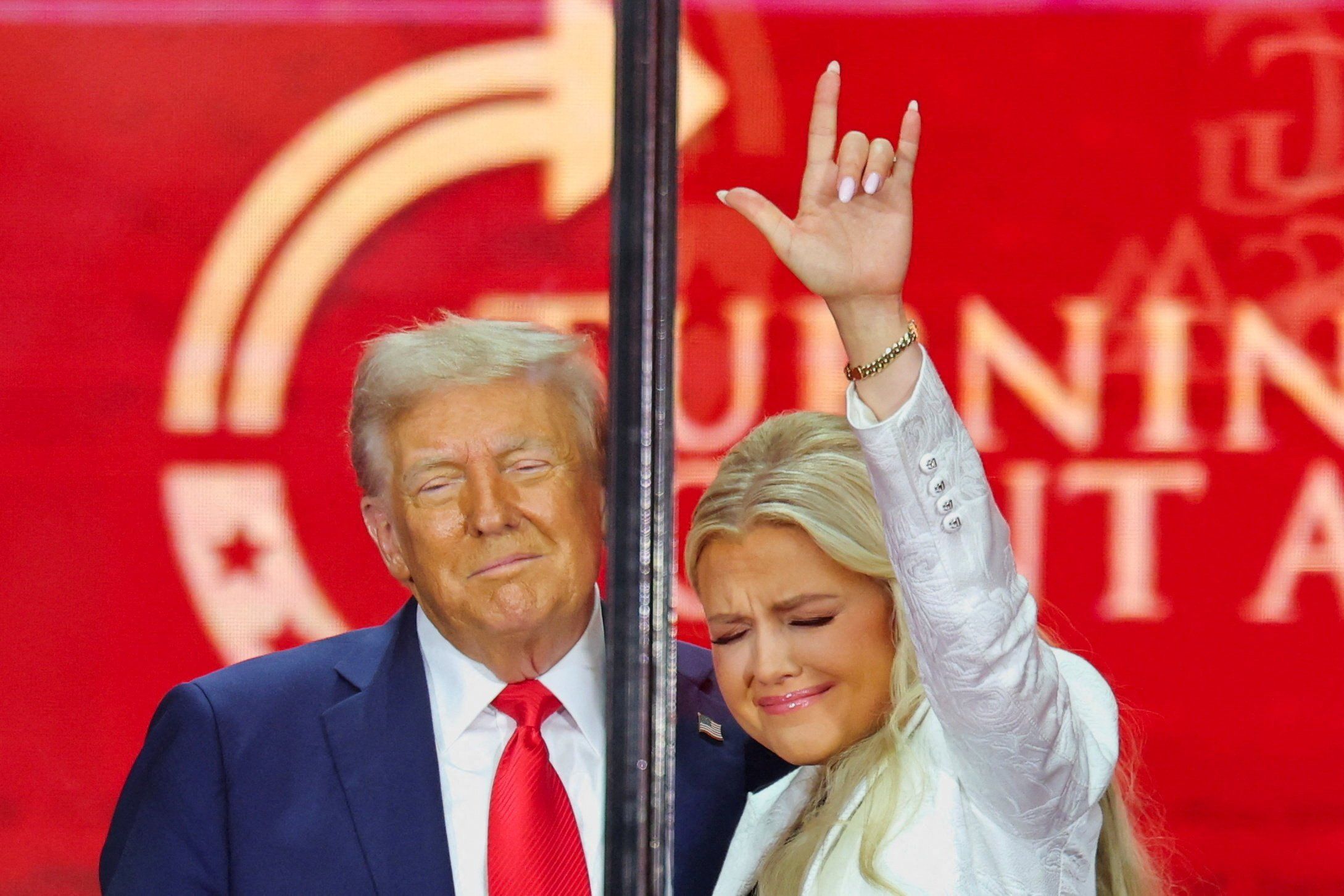Churches are seeing a mass exodus of formerly evangelical Christian women who are "disengaging from religion" due to conflicting viewpoints and politics, according to a report in the Religion News Service (RNS).
These women, known as "exvangelicals," have found themselves turned off by their churches' and families' embrace of President Donald Trump and his far-right viewpoints.
"What upsets me most is how politics has become so intertwined with the church,” said Taylor Yoder. “It turned a lot of evangelicals in my life really ugly.”
Yoder said her family's support of Trump caused her to "deconstruct" her faith. She also said that friendships with LGBTQ co-workers caused her to "reexamine what she’d been told about homosexuality."
“Do I really believe that these people deserve to burn in hell just because they don’t believe like me?” she asked.
Yoder, now an atheist, critiques evangelicalism and its political ties in videos on TikTok, where she has amassed an impressive following.
This trend of "exvangelicals," RNS writes, is catching on with many young women like Yoder, who are generating "a flurry of memoirs, podcasts, social media posts and YouTube channels depicting evangelical culture as oppressive, unhealthy and even harmful."
"Their critiques converge on four themes: politics, patriarchy, abuse and the treatment of LGBTQ people. They tell of churches rallying behind Trump, keeping women out of leadership and instead promoting a culture of 'purity,' while failing to address abuse scandals exposed in the #ChurchToo movement that followed #MeToo," they explain.
Some call this divine intervention.
“I think God is raising up women to speak out,” said Amy Hawk, author of “The Judas Effect: How Evangelicals Betrayed Jesus for Power.” “God is allowing this so that we can see the corruption and step away from it.”
Hawk also has an impressive following on social media where she argues, "Bible in hand, that it is unbiblical to support Trump," RNS writes.
This has made her a beacon for women who have left the church. “Many are coming to me and saying, ‘Thank you, I thought I was going out of my mind,'" she said.
April Ajoy, author of “Star-Spangled Jesus: Leaving Christian Nationalism and Finding a True Faith,” woke up when she saw a former church acquaintance on TV storming the U.S. Capitol on Jan. 6, 2021 "under Christian nationalist flags." Then her brother came out as gay.
“I spent nights crying because I felt so alone and confused, questioning if everything I ever believed was a lie,” she said, and only later recalled things she’d said to others. “I didn’t realize my own hypocrisy in the middle of it,” said Ajoy. “I feel like the evangelical God is in a very tiny box.”
Yoder said her decision to leave the church was confirmed after seeing late MAGA podcaster Charlie Kirk elevated to martyr status.
"He embodies how hateful and divisive they can be toward LGBTQ people. He was very much the opposite of what I wanted to be a part of," she said.
According to the Pew Research Center, research from the Public Religion Research Institute suggests that exvangelicals are comprised of 58 percent female and 42 percent male.
Their reasons vary, RNS writes: "80 percent say they no longer believe their religion’s teachings, 58 percent cite anti-LGBTQ views, while half say their faith harmed their mental health."
Beth Allison Barr, a Baylor University historian who chronicles women’s roles in the early and medieval church, says that women make up more of the exvangelical movement for one reason in particular.
"Women don’t see a place for themselves in the church,” Barr said. “They don’t hear women-elevated stories. They do not feel like their callings are appreciated.”
For many women, "Trump’s rise — and evangelical support for him — was a turning point," RNS explains. About 80 percent of white evangelical Protestants voted for him in the past three presidential elections.
“I honestly could not believe that the church was holding him up as anybody besides a con man and an abuser,” Hawk said. “I spent all those years ministering to women, being the hands and feet of Jesus, and then the church is telling me I should be excited about somebody that attacks women.”
Christian author Sheila Wray Gregoire likens the stories of exvangelical women to the early stages of the Protestant Reformation in the 1500s.
It’s a “rejection of Christianity as being about power,” Gregoire said. “I think that’s where we are, where people are dissatisfied with the church as it is. What’s coming hasn’t come yet. And we can’t see what that’s going to look like. But it’s an exciting place to be.”
